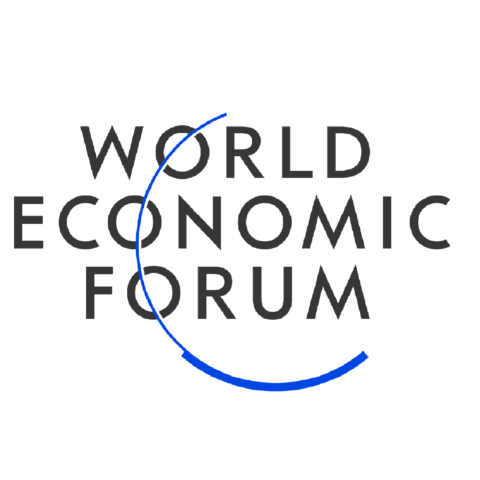- A wide range of technologies are ready for deployment and will further accelerate the pace of economic progress and social outcomes
- Globalization 4.0 must be more inclusive and enable equity in economic outcomes
- Businesses must join governments in defining the shape of Globalization 4.0 and create an optimum governance architecture
- The Annual Meeting is being held under the theme, Globalization 4.0: Shaping a Global Architecture in the Age of the Fourth Industrial Revolution
For more information about the Annual Meeting, visit www.weforum.org
Davos-Klosters, Switzerland, 22 January 2019 – By 2025, the fifth generation (5G) of mobile telephony technology will be rolled out in 110 countries, bringing unprecedented benefits for consumers, businesses and society, Ken Hu, Deputy Chairman and Rotating Chairman of Huawei Technologies, told participants at the World Economic Forum Annual Meeting, which opened today in Davos-Klosters, Switzerland.

In Globalization 4.0, “I believe there will be more focus from business benefit to social value,” Hu said, citing the potential of technology to make life better for people living with disability, provide more widespread access to banking services, and grow food for the expanding population. “The World Economic Forum is a great platform to explore the social value it can bring to us,” he said, adding, “[The] social value we can create should be part of the key considerations for business.”
Evolving technologies will resolve the productivity paradox, said Rajiv Suri, President and Chief Executive Officer of Nokia Corporation. Citing the example of the United States, where the digital economy has enhanced productivity by 2.7% per annum while the physical economy has grown by less than 1%, he surmised that the “tipping point” for the US will be the year 2028. Four sectors – health, transport, energy and manufacturing, which are underpinned by digital networks – will unleash this wave of productivity.
Yet, the rapid advance of technology is accompanied by a widespread erosion of trust among citizens, who should be the beneficiaries of digital technology. Eileen Donahoe, Executive Director, Global Digital Policy Incubator, said there is also an erosion of confidence among governments that as technology advances and gets applied in various uses, it is possible to simultaneously protect public good and national security while advancing economic growth.
This is why Globalization 4.0 needs to be much more human-centric. “Customer- and citizen-centricity is imperative,” agreed Alfred F. Kelly, Chief Executive Officer of Visa, adding that for the first time in history, the size of the middle class is larger than the number of people in poverty, creating never-before possibilities for financial inclusion. “Financial inclusion comes after financial literacy,” Kelly said. “For this, education is necessary.”
Businesses and governments must invest in reskilling the workforce to address anxiety over impending job losses, said Abidali Neemuchwala, Chief Executive Officer of Wipro, adding that businesses must also improve their ability to assimilate cultures. To this end, his company is recruiting locally everywhere in the world, hiring as many people in the US, for instance, as it typically hires in India.
Rebuilding trust has to be a collaborative effort by business and government, the panellists agreed. A coalition of government and business to develop good privacy and cybersecurity policies that can be applied across countries would be a defining moment, Suri said, adding that it is important to spread awareness of the benefits of Globalization 4.0 and 5G technology.
Calling for a joint effort among businesses to help governments understand the nature of business, Hu pointed out that current globalization is the result of competition and cooperation based on comparative advantage. Further, the business community must join the process of defining Globalization 4.0 lest distrust negatively affect more and more industries and businesses, he said.
In response to a question about the role of energy in the ongoing digital transformation – the IT world today uses nearly 10% of the total electricity produced globally, and in 10 years will use 20%-30% – Kelly said Visa aims to use 100% renewable energy in all its data centres. This, he said, is the best option for the world and the best option for the company’s costs, and also matches its sense of purpose, which is “a natural part of how we do business.” Kelly also called for greater gender equity in business.
In answer to another question about whether a universal basic income could resolve the oncoming problem of technology-induced joblessness, Donahue said that, although there is no argument against meeting people’s basic needs, a universal basic income would not address the need for meaning that work provides in people’s lives, nor would it alleviate the sense of disenfranchisement in the minds of those left behind.
In view of the ongoing tensions between the US and China, fuelled partly by rivalry over technological prowess, Donahoe said that, although at times global cooperation may seem elusive, it is important to remember that “we don’t need new values, we need a new architecture” – one that will protect the core values of liberty, equality and democratic process.
The World Economic Forum Annual Meeting brings together more than 3,000 global leaders from politics, government, civil society, academia, the arts and culture as well as the media. Convening under the theme, Globalization 4.0: Shaping a Global Architecture in the Age of the Fourth Industrial Revolution, participants are focusing on new models for building sustainable and inclusive societies in a plurilateral world. For further information, please click here.
The World Economic Forum, committed to improving the state of the world, is the International Organization for Public-Private Cooperation. The Forum engages the foremost political, business and other leaders of society to shape global, regional and industry agendas. (www.weforum.org).
